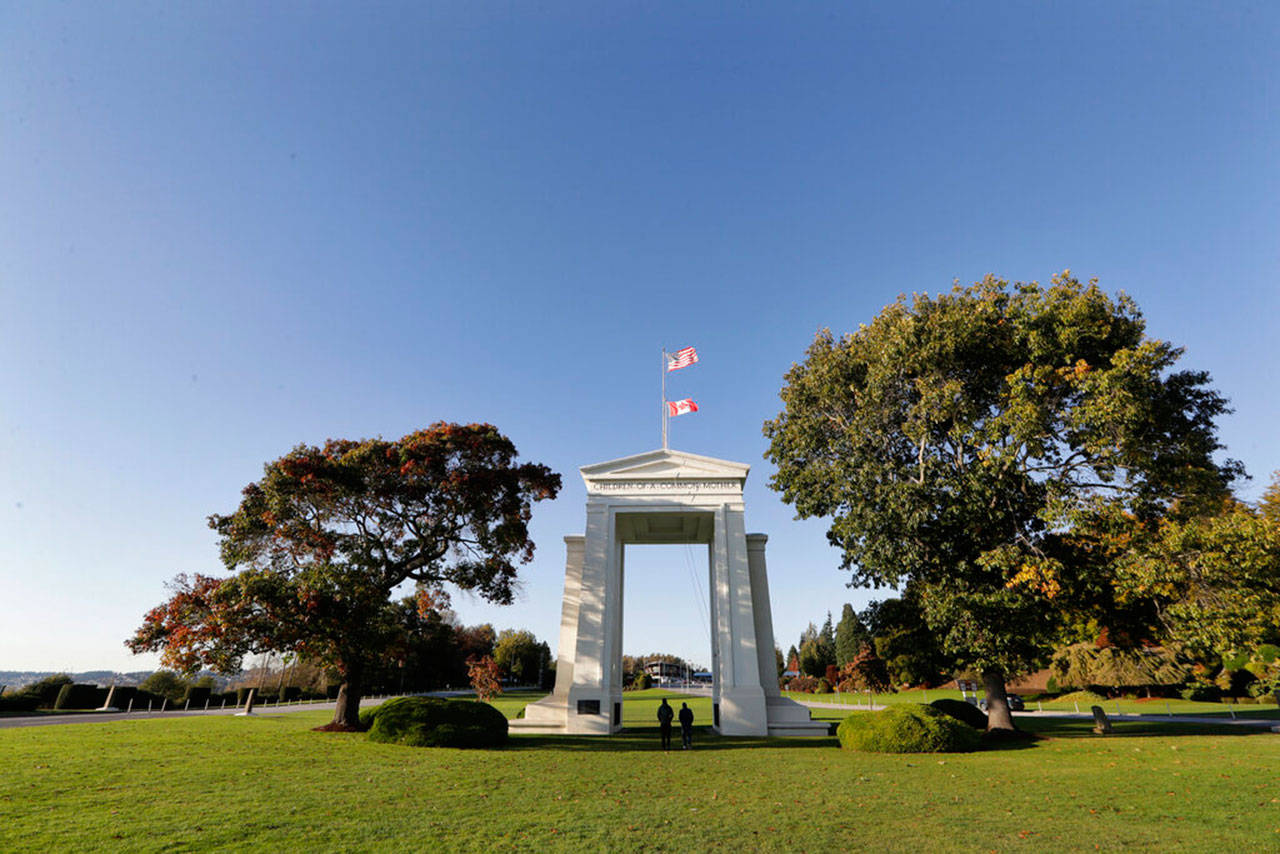I hereby declare, on oath, that I absolutely and entirely renounce and abjure all allegiance and fidelity to any foreign prince, potentate, state, or sovereignty, of whom or which I have heretofore been a subject or citizen; that I will support and defend the Constitution and laws of the United States of America against all enemies, foreign and domestic; that I will bear true faith and allegiance to the same; that I will bear arms on behalf of the United States when required by the law; that I will perform noncombatant service in the Armed Forces of the United States when required by the law; that I will perform work of national importance under civilian direction when required by the law; and that I take this obligation freely, without any mental reservation or purpose of evasion; so help me God.
— Naturalization Oath of Allegiance to the United States of America
We are not that many decades removed from the internment camps where American citizens — naturalized and birthright — of Japanese descent were rounded up and detained between 1942 and 1945.
More than 111,700 people, the large majority American citizens or legal residents, were torn from their homes, their businesses, their schools, their places of worship and their communities and sent to live in desolate camps in Arizona, Colorado, Wyoming, Arkansas, California and Idaho, waiting out the duration of the war. Their detention in these camps — deemed necessary for the nation’s security — was rooted in suspicion and fear based on where they or their ancestors were born and with no recognition of the oath — similar to the one above now in use — that most had made when they became American citizens.
The detentions of naturalized American citizens of Iranian descent earlier this month at the Peace Arch border crossing at Blaine were mercifully shorter — between three and 12 hours — but the fear and unwarranted suspicions were little different from those of 75 years earlier and no less concerning.
Operating under what the U.S. Customs and Border Protection service would later call “an enhanced security posture at U.S. ports of entry” following increased tensions between the U.S. and Iran, including a drone attack that killed an Iranian military leader in Iraq, more than 60 Iranian-Americans and Iranians in the country legally reported being detained and questioned in secondary holding when they attempted to return to the U.S. from Canada; most had attended a Iranian pop concert in Vancouver, B.C., that day, and were on their way home. To their country.
We expect the nation’s border security staff to be through and observant regarding all who cross the border, but decisions to hold out those for additional questioning — based solely on where one was born — are unwarranted and could be counterproductive if they pull attention away from those who do call for more scrutiny.
As concerning, additionally, was the CBP’s initial denial that any Iranian-Americans had been detained or refused entry. That denial stood in contrast to reports of American citizens, among them a 24-year-old medical student who said she was refused reentry into the U.S. for 10 hours.
Among those who first heard these stories was the state’s No. 2 executive, Lt. Gov. Cyrus Habib, who received text message and emails from friends and others who had been detained. Habib, like those detained, is Iranian-American. His heritage, he said, however made no difference regarding his concern, only to how he was alerted.
The denial that anything other than delays caused by increased traffic at the border crossing drew an accusation of “gaslighting”by Habib. From those detained came stories that disputed the agency’s denial and justified Habib’s criticism.
“We kept asking why we were being detained and asked questions that had nothing to do with our reason for traveling and was told ‘I’m sorry this is just the wrong time for you guys,’” said the medical student identified only as Crystal in a news release, The Bellingham Herald reported.
And it strengthens the call by members of Washington state’s congressional delegation and others in Congress — among them Sens. Patty Murray and Maria Cantwell and Reps. Suzan DelBene and Rick Larsen — for answers as to whether the detentions were in response to a directive or policy and the basis for the additional questioning and their delayed readmittance.
It’s an open question whether the detentions were policy or the overzealous actions of border agents. Either way, unless CBP agents had more information or observations that would justify the additional scrutiny of those crossing the border, apologies are owed to these American citizens.
There is no “wrong time” for a U.S. citizen to be allowed to return home.
Talk to us
> Give us your news tips.
> Send us a letter to the editor.
> More Herald contact information.

























